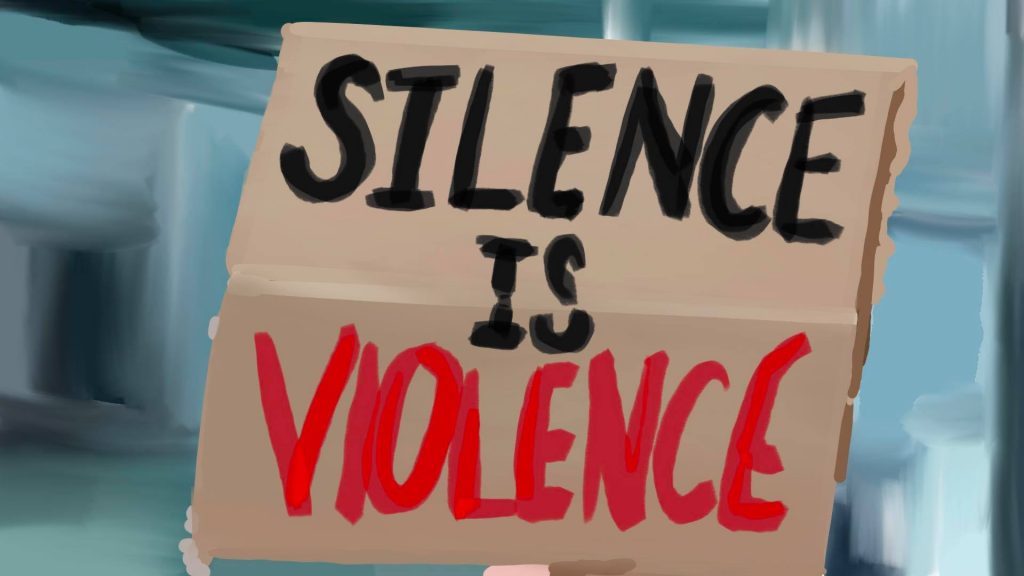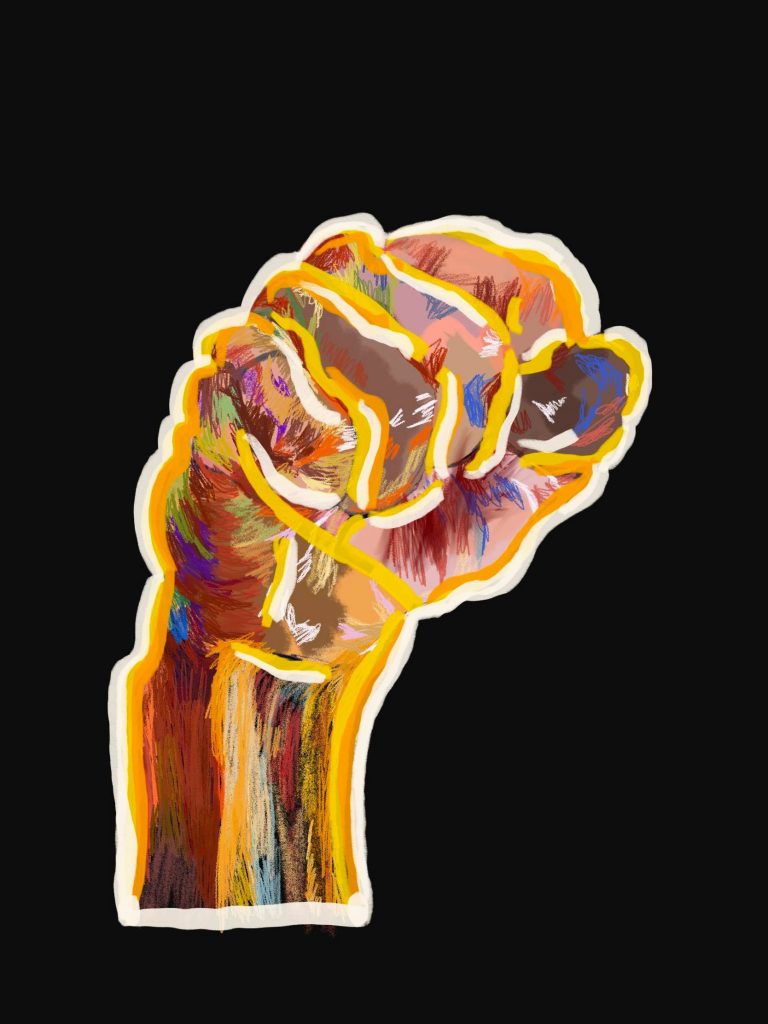A Striking Birthday, by Katherine Wheeler
One of my most powerful memories pre-pandemic was the day I went on strike. It was September 2019 and everywhere I went, there were people talking about the climate like never before. As young people we were going to suffer most from climate change and the government was paying us no attention. The one thing we could do that we could control, that people in power might take notice of, was to refuse to go to school.

At the time it seemed huge, one big unifying world event that people everywhere could get behind. Greta Thunberg was tweeting about it, people at my sixth-form were talking about it. It was the first protest I’d seen that my friends were interested in going to. We made signs and then a few hours later we made the news. There were speakers with poems and prose they’d prepared, councillors and campaigners all queuing up for a chance to speak through the microphone. I was feeling brave so I took the mic. I told them it was my 18th birthday, that we had a big difference to make and that the biggest difference we could make was to vote. They ended up singing ÔÇÿHappy Birthday’ to me.

The protest drew attention from the local news. It was a starting point for many people who’d never been to a protest before. Though the government took no notice and attempted to patronise us back into going to school, many people gained a valuable experience that day.
Climate Change in Spain, by Alice Clifford
In 2019 I participated in the international climate change protests that swept the globe and saw millions march to raise awareness about the environmental crisis. I was studying in Granada, Spain at the time and had only been there for a few weeks. So, what better way to meet the locals!? I met with some friends beforehand to make banners and slogans (some inspirational, some bilingual and some pretty terrible as we realised we were going to be late!).
As we walked to the city centre the banging of drums and the loud Spanish chatter started to fill the streets, getting louder and louder with each step until we found where we needed to be. As I stood in the crowd I was blown away by the amount of people all chanting together and standing in support of our planet in glittery solidarity. My favourite protester was a boy who was around 7 who brought a microphone and speaker and didn’t stop chanting the entire march, which lasted around 3 hours.

If I had to describe the protest in one word it would be overwhelming. I was amazed by the number of people who took to the streets with microphones and banners in their hands. After years of feeling that the world didn’t care about the planet they lived on, it was reassuring to see so many people in support. And through each person’s individual passion, drive and motivation they were able to inspire others to join the fight, showing that each individual has the power to make a difference.
As well as inspiring people on a global scale, we have seen positive direct responses to these protests. One example is Angela Merkel’s announcement which stated that she was going to put forward a 50 billion euro package with the aim to lower carbon emissions.
It is evident that despite these protests we still have many more hills to climb, and I am sure we will have to take to the streets again. But the dedication and passion I saw from those around me gave me back a sense of hope that I thought I had lost a long time ago. I think the UK Student Climate Network’s manifesto captures it best:
“Greta Thunberg may have been the spark, but we’re the wildfire and we’re fuelled by the necessity for action.”
Solidarity for Sarah, by Zahra Nadeem Ahmed
The most recent and only protest I have attended was the Cardiff vigil held for Sarah Everard. The vigil was organised in the wake of the sad passing of Sarah and was a chance for people to come together in solidarity against violence towards women. The reason why I attended was because, I like many other women was tired of the endless abuse women deal with on a daily basis and felt a need for necessary change. Before, heading to the vigil I felt somewhat anxious.
Not only was this my first time protesting, but I had also witnessed individuals at the BLM protests in London experience police brutality and was worried if I was going to experience the same fate. Despite this underlying anxiety, I decided that attending and showing my support was more important than the fear of being reprimanded. The night before the vigil my and my housemates created signs to hold up during the protest. I wrote ÔÇÿText me when your home’ on my sign as it is a message every girl sends to their friend when they venture on their way home and Sarah was doing what every woman has done: she was just walking home. During the vigil, many women and men spoke to the crowd.

It was highly inspiring to see women speak out about the abuse they have endured and men show solidarity with the cause. While I was exhausted at the fact that women have been preaching the same message for years now I also felt overcome with emotion that we were all united on one front. After the protest, I signed various petitions calling for changes to made in regard to improving women’s safety such as: placing floodlights on the bridge in Cathays and having the SU distribute free rape alarms to female students. The protest was a watershed moment and will be a lasting memory of my time at university.

Fighting for Women’s Rights, by Maja Matera
I remember going to my first ever protest. It was in 2016 and the right wing party had their first attempt at taking away women’s rights. They wanted to make abortion almost completely illegal. Me and my friends came to school dressed in all-black to show our complete lack of support for the document discussed in the parliament.
My last class of the day was Knowledge About Society which was set to finish at 4:20pm. My classmates wanted to leave early to make it for the start of the march. “If you were going on a date, I would let you. But this can wait. Sit down” was the teacher’s response.
After arguing with him that his attitude is ridiculous – he was supposed to teach us about being active citizens after all, I left the class as soon as the bell rung. And then – hand in hand with my best friend, in rain and with my leather jacket on, I yelled “My Body My Choice” to let go of all the fear and anger I had in myself because of old white straight men thinking I’m their property. A year later, with a rainbow flag I walked with the Pride Parade – one of the last during which we felt safe and didn’t risk being beaten up by nationalists – just like the one who told us to sit down unless another man is waiting for us.



